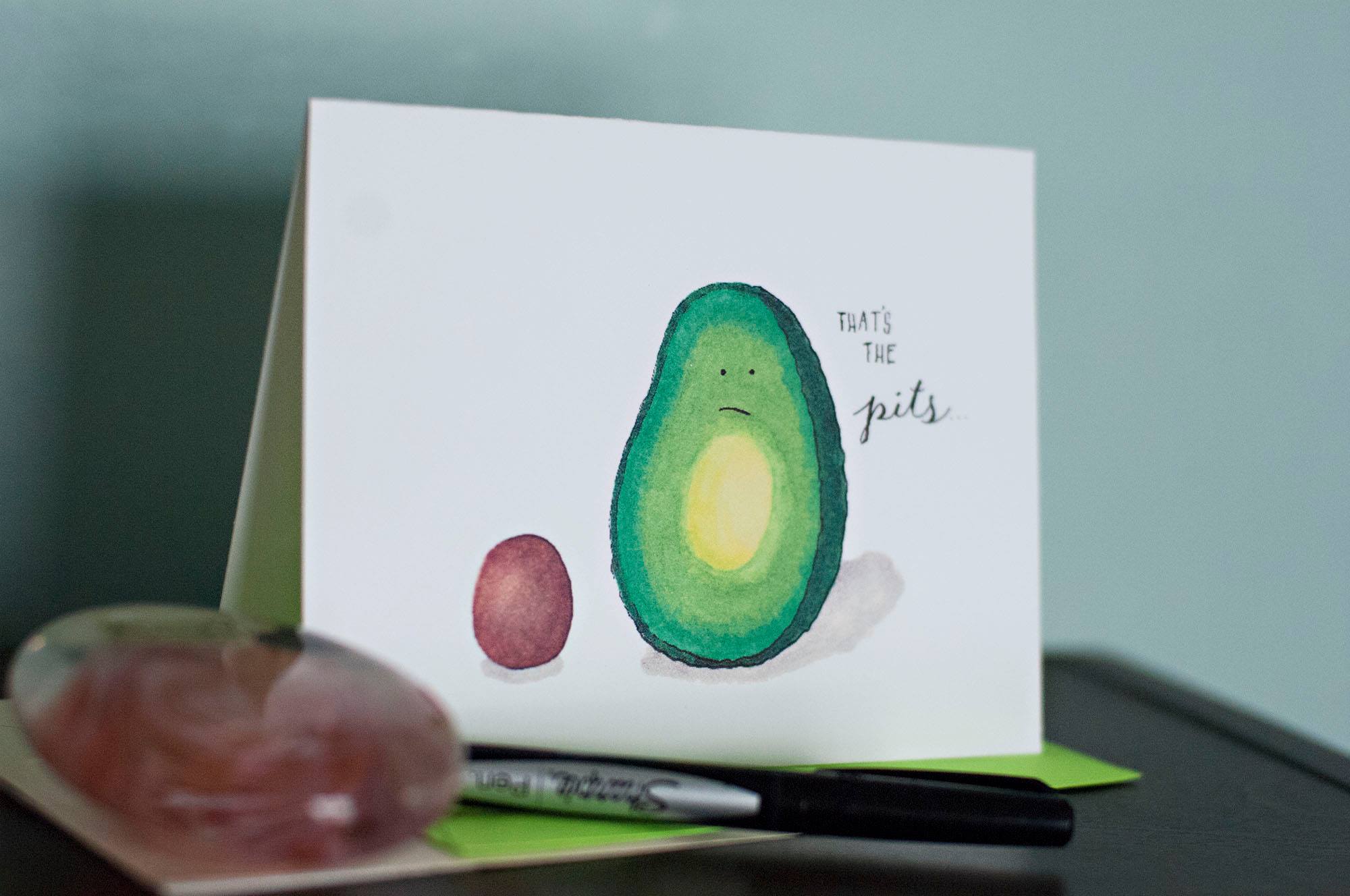I read something the other day on the subject of suicidal depression that made me a little twitchy. I think you might have seen it too. It was a list of quotes from people who loved Robin Williams, Kate Spade and Anthony Bourdain. The quotes all expressed how those people had seemed fine, “happy” even right up until the end. The quote is then followed by some advice to “check on your friends” even if they seem happy, strong, and appear to be doing fine.

Rebecca Tredway Photography. Card by Truth Papers.
I’m struggling with this. From all accounts, it seems as though these celebrities were being checked on. They had people who loved them and wanted them in their lives. They had every reason to live, but they still took their own lives.
This hit home for me.
Several years ago we lost someone very close to us. He had lived a very troubled and traumatic life and we were there to witness part of it as his houseparents. He lived with us during our group home days and continued to stay in contact with us afterwards. I can’t explain to you the grief and guilt that come with losing someone you love this way. There are endless questions about what we could have done differently to help him cope. Should we have been in more regular contact? What should we have said? How did we not know he was that close to the edge? What could we have done differently to avoid this outcome?
But I’ve had to let that go. This was his choice and I can’t own it for him. I have to make some kind of peace with the fact that “checking on your friend” wasn’t going to fix this situation. We loved him the best way we knew how. I have no doubt that he knew we cared about him and that we’d be devastated by this outcome. He had so much to live for, but his struggle with mental health issues stemming from an abusive childhood were beyond his ability to cope. I wish checking on him could have made the difference, but that’s just not how the story goes.
Imagining we could prevent these issues by just checking on our friends may make us feel more powerful than we are. And it’s going to make us own our “failures” more than we should.
We’ve got to stop heaping guilt onto the family members and friends of those who can’t win their battle with depression, trauma, and mental health issues. I really think this “check on your friends” mantra creates unrealistic expectations about what we can do for our friends. I’m concerned that it scares people with healthy boundaries away from having relationships with the very people who need them most and invites codependent relationships to flourish.
I have a close friend who struggles with suicidal depression. She and I are in regular contact about life which of course includes the ups and downs of her depression issues. We have had to have the open and difficult conversation that I can’t be responsible for fixing her depression. If I thought it was on me to check on her enough that she wouldn’t act on her suicidal thoughts, I would run from this relationship. That’s a pressure no one should can carry. She knows it’s on her to ask for the help she needs and that I will always be there to listen as she wrestles with these demons. But I can’t make her tell me the truth if she doesn’t want to. I can’t make her get the help she needs. Outside of the most extreme circumstances, no one can force her to take her medication or get more intensive treatment if she needs it. (*She read all of this before I even considered posting it and gave her blessing.*)
I will check on my friend, not because she’s struggling with suicidal depression, but because she’s my friend. And she checks on me too. This is a mutually beneficial relationship that isn’t defined by depression or trauma, but by our shared conversations about Jesus, Parks and Recreation, kombucha, and what articles we’ve recently read. This can’t be about trying to fix each other or about developing the kind of codependency where I would accept ownership for how she handles her struggles.
I think people struggling with suicidal depression need friends who have healthy boundaries. They need people who can walk with them and sit with them without seeing them as projects or problems or taking emotional ownership of their issues. I don’t want this “check on your friends” mentality to mean that people with healthy boundaries shy away from investing in those struggling with mental health issues because they won’t carry the weight of those unrealistic expectations.
So yes, check on your friends because you love them, not because you think checking on them will magically prevent them from doing the unthinkable. Have healthy boundaries that allow you to invest in people who are struggling without taking ownership of their issues. And make the most of your interactions because no matter what the circumstances, life is short.
(I just finished reading this article that explains the push towards suicide from those struggling with depression in a profound way that was eye-opening for me. I highly recommend it if you love somebody who struggles this way.)

2 Comments
Leave a reply →